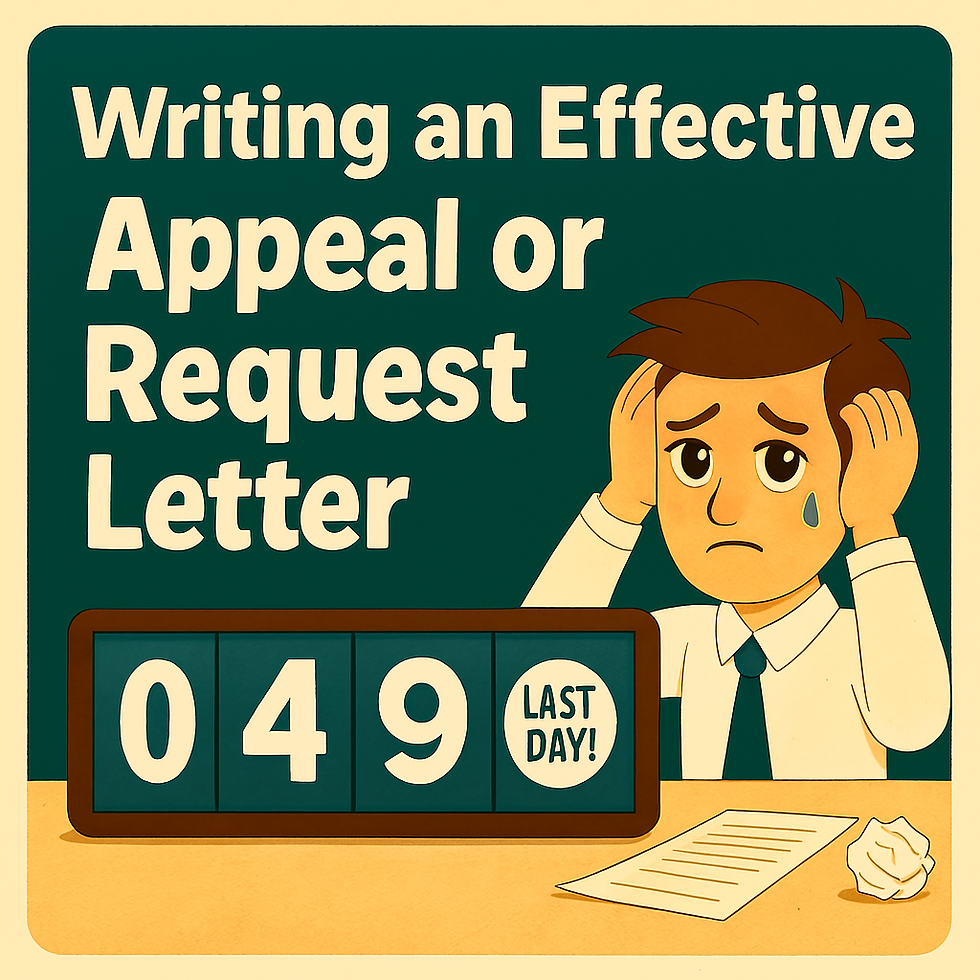How to Write a Letter That Wins Compensation
- LetterLab

- Oct 22, 2025
- 3 min read

Turn frustration into fair payment — the smart way to claim what you’re owed
When a company lets you down — a cancelled flight, damaged delivery, or failed service — it’s tempting to fire off an angry email and hope for the best. But successful claims aren’t about luck or volume. They come from calm, factual writing that makes it impossible for a business to ignore you.
This guide explains how to write a compensation letter in the UK that gets results — not just apologies.
Why Compensation Letters Work
Under UK consumer law, you can claim money back if a company fails to deliver what it promised — including poor service, faulty goods, or costly delays.
A written complaint creates a paper trail that protects you. According to the Citizens Advice consumer rights guide, a record of your correspondence often speeds up investigations and increases your chances of reimbursement.
A good letter isn’t just polite — it’s proof.
Step 1: Know What You’re Entitled To
Before writing, check the company’s refund or compensation policy. Reliable resources include:
Which? Consumer Rights Hub – general goods and services.
Civil Aviation Authority – flight delay compensation.
Ofcom Complaints – telecoms and broadband issues.
Knowing the law behind your claim adds authority and prevents token “credit only” offers.
Step 2: Keep It Short, Clear, and Calm
An effective refund request letter fits on one page. Businesses handle hundreds of complaints a day, so brevity helps.
Open directly:
“I am requesting a refund for order #44592, delivered on 3 June 2025, which arrived damaged and unusable.”
Then state key facts:
Date of purchase
What went wrong
What you’ve done so far
What you’re asking for
Avoid emotional language — facts win arguments, not frustration.
Step 3: Attach Proof
Evidence turns opinion into action. Include:
Photos of the issue or receipts
Screenshots of messages or emails
Proof of payment
As MoneySavingExpert explains, documentation dramatically raises your success rate by saving companies time verifying details.
Step 4: Be Specific About What You Want
Don’t leave your request vague. State the outcome clearly:
“Please confirm a full refund of £84.99 or a replacement item of the same value.”
Specific requests prompt faster responses than general complaints.
Step 5: Include a Reasonable Deadline
Give the company 10–14 working days to reply:
“I would appreciate a written response within 14 days confirming how this matter will be resolved.”
If no reply arrives, escalate to the Ombudsman Service or your credit-card provider under Section 75 of the Consumer Credit Act 1974.
Step 6: Keep Copies and Record Everything
Save your letter, attachments, and responses.
The Financial Ombudsman Service stresses that detailed records make disputes easier to settle and stop firms denying responsibility.
Example: A Winning Refund Letter
Subject: Request for Refund – Order #44592
Dear Customer Service,
I am writing to request a full refund for order #44592 placed on 1 June 2025 and delivered on 3 June 2025. The item arrived damaged beyond repair, and despite contacting your support team on 4 June, I have not received a response.
I have attached photos of the damaged item and the delivery note. Please confirm a full refund of £84.99 within 14 working days.
Thank you for your attention.
Yours sincerely, [Your Name]
Short. Factual. Impossible to ignore.
Step 7: Mind Your Tone
Polite firmness gets better outcomes than anger.
Instead of “Your service is a joke,” write:
“I’m disappointed with the service received and hope this can be resolved promptly.”
The UK Government style guide recommends plain English, logical flow, and calm language for effective results.
Step 8: Follow Up
If you hear nothing after your deadline, send a short reminder:
“I wrote to you on [date] about [issue]. Could you confirm whether my letter was received and when I might expect a reply?”
Persistence shows professionalism — not impatience.
When to Get Professional Help
If your case involves a large sum, repeated failures, or formal escalation, a professional letter can make the difference between rejection and repayment.
At LetterLab, our writers specialise in compensation letters in the UK, producing refund and claim letters that get noticed and acted on.
You can even try your first 250 words free to see how professional editing transforms your chances.




Comments